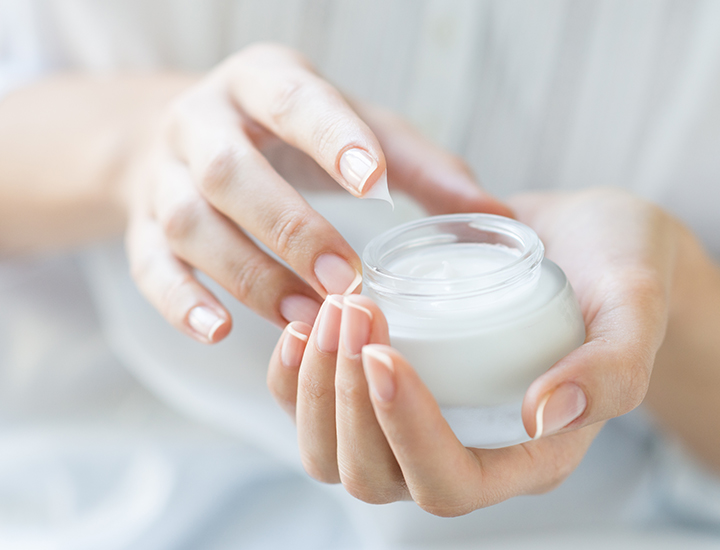
2 Expert-Approved Neck Cream Types That Moisturize And Soothe:
1. Hydration-Focused
The first type of neck cream to seek out when skincare shopping, Kim says, is one that hydrates your skin, and has a smoothing effect. This, she explains, means your ideal product will include the following ingredients: "hyaluronic acid, glycerin, and shea butter." These three powerful cream ingredients, she notes, "help to hydrate the skin and reduce the appearance of fine lines and wrinkles."
Hyaluronic acid, glycerin and shea butter are vital to add to your daily use, Kim continues, as they not only keep skin from becoming drier and patchier, but also saggier.
Using a neck cream with these hydrating ingredients can "help to support healthy, young-looking skin on the neck and décolleté," Kim says, adding, "as women age, the skin on the neck can become thinner and more prone to sagging and wrinkles, so incorporating this into your routine can help to address these concerns."
One other ingredient often found in neck creams like this, that can lead to smoother skin, is peptides. "Neck creams with peptides may help to boost collagen production, which can help to firm and tighten the skin," Kim points out.
2. Antioxidant-Rich
Another neck cream type to grab at the store is one that is antioxidant-rich, Kim suggests. "Neck creams with antioxidants like vitamin C can help to protect the skin from free radical damage and promote a youthful appearance," she says.
"It's important to choose a neck cream that is specifically formulated for the neck area, as the skin on the neck is thinner and more delicate than the skin on the face," Kim recommends.
Any neck cream you choose should be used in addition to a "comprehensive skincare routine that includes cleansing, exfoliating, and moisturizing," she advises.
For the best results, Kim concludes that hydrating and antioxidant-rich neck creams should be applied "twice a day, in the morning and evening." For more information about specific neck creams and which type can best suit your personal needs, visiting your dermatologist can help provide more insight.


